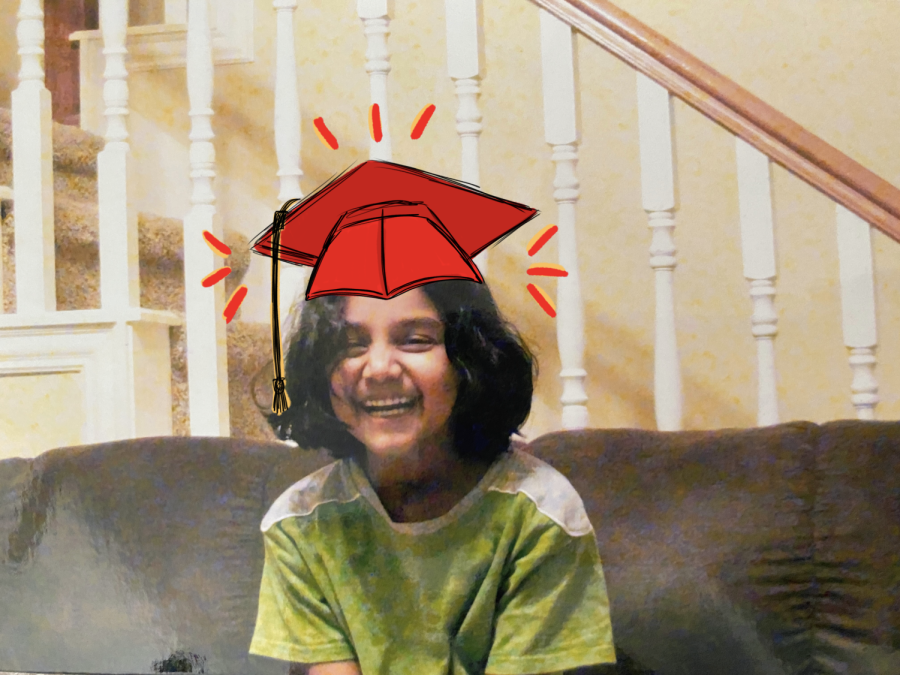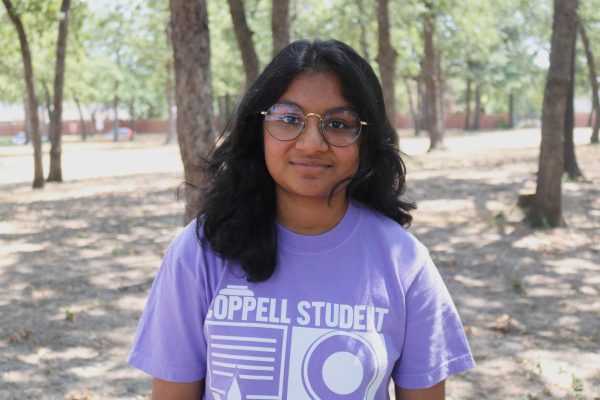Letter from the Editor: The perfect ending
The Sidekick executive editor-in-chief Anjali Krishna is graduating, leaving her unsure how to perfectly wrap-up her senior year. Krishna writes about her favorite endings to books, songs and TV shows, tying them into her life as she works on finding her own ending to high school.
May 11, 2022
My favorite things are almost always endings: the last 30 pages of The Goldfinch, the outro of Phoebe Bridgers’ “Moon Song,” the reluctant closing scene of La La Land.
I think it’s because of that forced poignancy in those last couple lines, the final few seconds. It puts upon my favorite endings a feeling of sensationalism, a grand sense of the extraordinary that I adore – one that I can’t help but search for in my own life.
In the same way I expect, and almost pressure, a poignant ending from my favorite writers and musicians, I want one for myself before I graduate. And I’m finding it, in small ways.
As I write my Sidekick awards banquet speech, I think of the closer to J. Cole’s iconic 2014 Forest Hills Drive, a 14-minute track that makes me smile every time. He thanks just about every person he’s met for their help in the album’s creation, laughing as he nears the end at the listeners that remain for staying for the “movie credits.” I have just as many people to thank – the sophomores that were ever so willing to learn, the juniors that taught me how to operate and Adobe InDesign, the seniors who were my sounding boards and grew up alongside me in this program.
In the movie Someone Great, I see myself as the main character is forced to accept leaving someone out of circumstance, not for any lack of love. I will too in just three short months. But how am I supposed to accept the inevitability of the ending of relationships with the friend who insists on saying my name the right way, the one who actually wants my honest advice about their hair, the one whom I can’t imagine my life without while only knowing them for a year?
Now, at least, in the last few weeks of school, I feel myself searching for poignancy more often. It makes the most sense how Emma Cline put it: “just like the world of teenagers, with our desire to catalogue and make meaning out of any sign or symbol, even the mildest of occurrences taking on great portent.” I want every piece of everything to have a meaning in these last couple of days of school: with these friends I know I won’t keep in touch with regardless of how much I hope I will and this school I won’t set foot in by means of requirement anymore. Even understanding that this is a uniquely teenage trait makes even my melodrama something to be missed.
So here I am, finding myself in all things – “Enchanted” after meeting someone at a party, Stranger in the Alps when I’m in existential crisis, but most of all, I find myself in “Perfect Places,” struggling to find this perfect conclusion, this perfect ending in the same way Lorde is – except she’s doing it in my favorite album of all time and I’m doing it on a Google Document at 4 a.m.
But perhaps that’s only fitting. These 4 a.m. moments are when I do my best thinking, and most of my work. And I’m thinking about how not-nostalgic I’ve claimed to be and how inevitable I’ve said these sad and disappointing endings are, but that they affect me all the same.
In men’s ice skating (something else I swore I would never lose interest in), there is always one inevitable performance to Turandot: “Nessun dorma!” It’s one of those songs that builds subtly, the backing choir joining the primary operatist until an exquisitely grand finale with a full band. I don’t know what the song is about – the literal or even interpretive meaning doesn’t matter to me as much as the path the song itself follows.
So if I’m applying poignance to everything else, it would be only appropriate to take from this as well, to understand that knowing what the peak is, or knowing a meaning doesn’t mean as much as the moment it’s taken from instead. It’s only fair that I take from this that there doesn’t always have to be something so picturesque – that meaning is what you imbue into something.
And knowing that, I would have to attach to these last 17 years of my life not a single label or media reference, but an appreciation for each and every moment and a knowledge that after the triumphant finale, there is a pause before the next song – but it always plays.
Follow Anjali (@anjalikrishna_) and @CHSCampusNews on Twitter.











